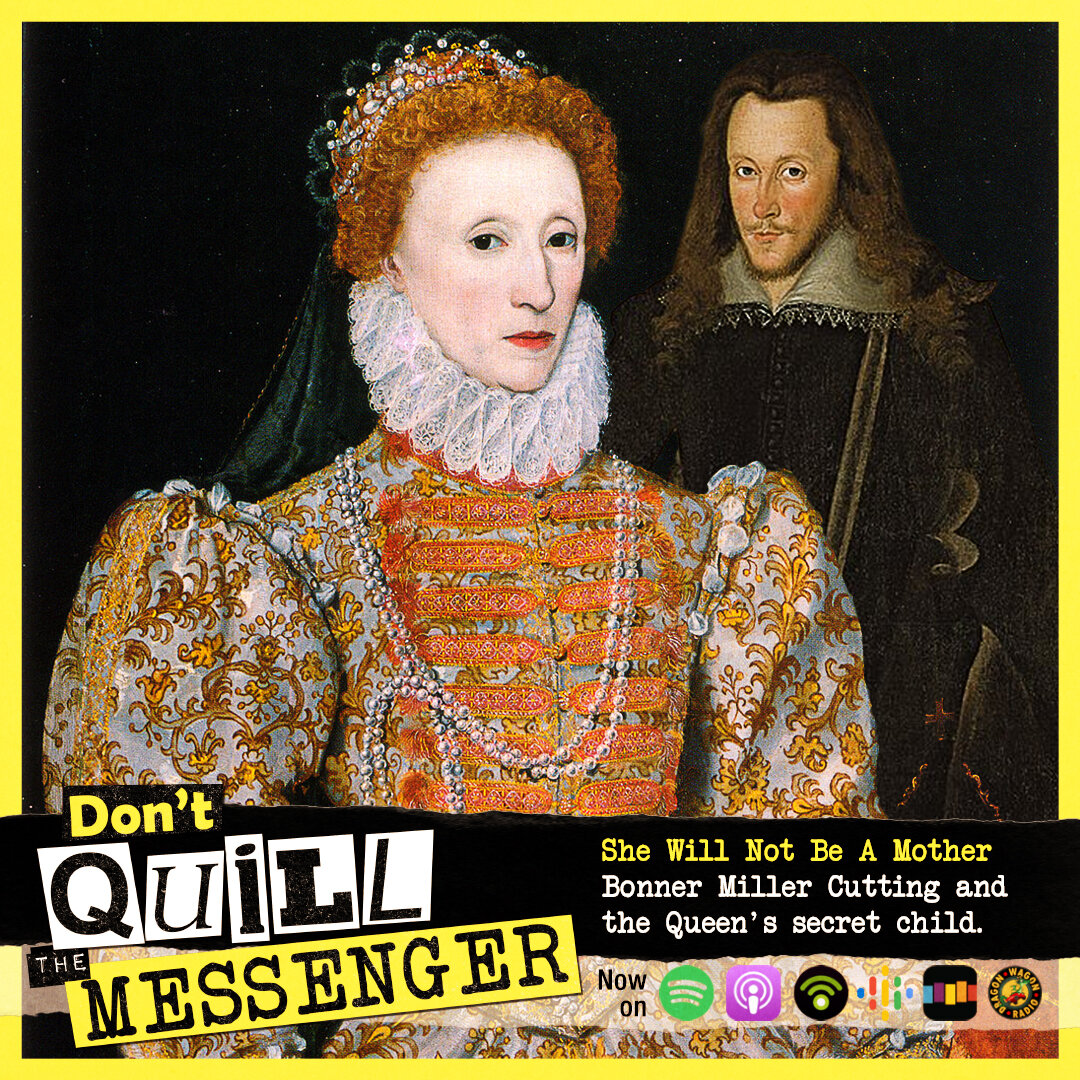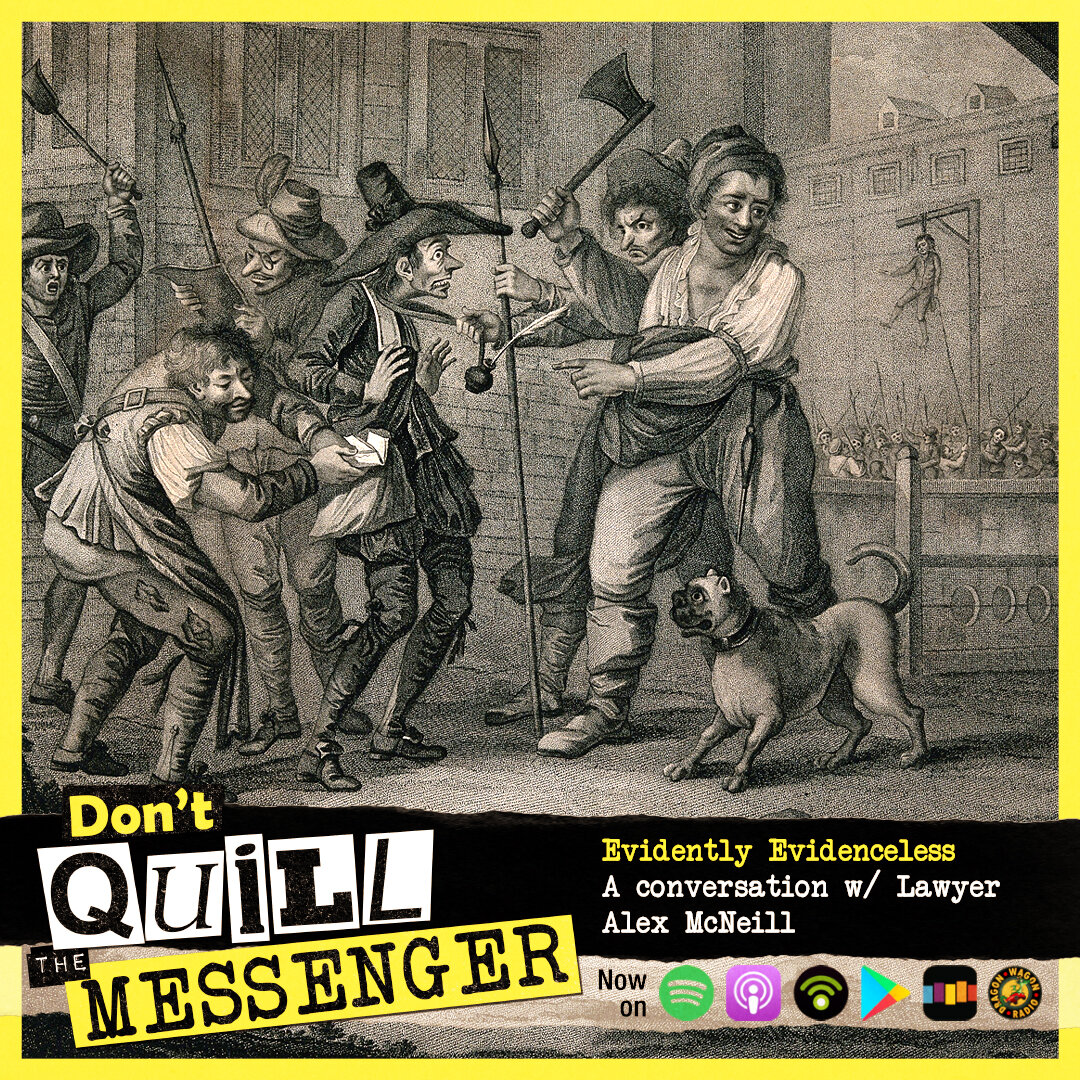Steven unravels the clues the playwright has embedded in the text to inform actors how to deliver his lines and understand his characters and suspects these clues prove the author was also a skilled director.
Translating Irish Clues
Steven welcomes Dublin-based lawyer, Rosemary O'Loughlin, to the series to discuss her discovery of what she believes are Oxfordian allusions contained within Irish playwright Brian Friel's play, "Translations." Rosemary is also the winner of the 2019 "Who Wrote Shakespeare?" Video Contest, as well as one of the social media managers of the De Vere Society in the United Kingdom. She and Steven also explore the importance of social media to the Shakespeare Authorship Question.
Stratfordianism as Religion
Steven welcomes John Brooks to the series. Brooks is the host of the podcast, "Hard To Believe," and a Connecticut prep school religious studies teacher. Steven calls upon John's expertise in world religions to examine why Stratfordians cling so tightly to the Stratford narrative.
Quiller Clare Conversions
All the way from the Turks and Caicos Islands, Steven talks with international listener, Clare Jaget (aka Quiller Clare), about how she became an Oxfordian, discovered our show, and what it was like to arrange a gathering of friends to hear a presentation on the Shakespeare Authorship Question. It was indeed a dinner party to remember.
A Patsy by Any Other Name
Steven welcomes back his most popular guest of 2020, researcher and author Katherine Chiljan, to discuss how the man from Stratford became a convenient cover for the works of Shakespeare.
But Mad North-Northwest
Steven speaks with investigative journalist Michael Blanding about his new book exploring the research of Dennis McCarthy who points to Sir Thomas North as an undiscovered source of Shakespearean writings.
The Problem Play : Troilus and Cressida
Steven welcomes Dr. Earl Showerman back to the program to discuss the many mysterious aspects of the providence of Troilus and Cressida and the many autobiographical aspects of the play which tie it so strongly to the life of Edward de Vere, thus helping to solve many of its mysteries.
Shakespeare on Film
Steven welcomes his wife, actress Annie Sabel, back to the program to discuss some of their favorite Shakespearean film adaptations, and some of the stinkers they can't bear to watch. From Kenneth Branagh's Hamlet, to Baz Lurman's Romeo & Juliet, Laurence Fishburne as Othello, to Josh Whedon's Much Ado About Nothing and more. Find out which films get the two thumbs up, and which ones get the raspberries from the Sabels.
Shakey's Madness
Steven welcomes author Robert Boog to the program to discuss his work, "Shakey's Madness," which explores evidence in the works of Shakespeare and the life of Edward de Vere suggesting he may have suffered from a mental disorder.
Zoom-Posium
Steven welcomes back Dr. Earl Showerman to discuss the line-up for the Shakespeare Oxford Fellowship's April 10 online virtual symposium, featuring an international cast of scholars, presentations, and panel discussions.
Good Night, Sweet Prince?
Steven welcomes William Boyle, retired librarian and founder of the New England Shakespeare Oxford Library, to discuss his 40-year history with Oxfordianism and why the controversial Prince Tudor theory of Shakespeare authorship continues to intrigue many who are interested in the Shakespeare Authorship Question and its history dating back to the 1930s.
For the Love of Shakespeare
Steven welcomes back Dorothea Dickerman to discuss the major romantic relationships in Edward de Vere's life, how they are reflected in the Shakespeare canon, and how they shaped the early feminism found in the works.
She Will Not Be A Mother
Steven welcomes back second generation Oxfordian Bonner Miller Cutting to explore the tenth chapter in Bonner's book, "Necessary Mischief," covering her research into theories that Queen Elizabeth may have had an illegitimate child in secret.
Two Year Anniversary
It is the two year anniversary of Don't Quill the Messenger! Steven welcomes back actor, filmmaker, and producer of the show Jake Lloyd Bacon to read listener emails and reviews and take a look back at year two before looking ahead to year 3!
Good Alone is Good Without a Guest!
In this episode, host Steven Sabel takes a suggestion from a listener and uses it to tackle the troublesome, so-called "problem" plays of the Bard's canon.
Even More of the 100 Reason
Steven welcomes Hank Whittemore back to the show for the second of back-to-back episodes exploring further entries in Whittemore's book, "100 Reasons Shake-Speare Was The Earl of Oxford." In this episode they discuss reasons #53, #61, #69, #85, and #99, touching on topics such as Oxford and Southampton, astronomy, royal suitors, truth, and daughters.
More of the 100 Reasons
Steven welcomes Hank Whittemore back to the show for the first of a two-part series of episodes exploring further entries in his book, "100 Reasons Shake-Speare Was The Earl of Oxford." In this episode, they discuss reasons #3, #14, #23, #30, and #46, touching on topics such as stage directing, "Beowulf," falconry, poetry, and commedia dellarte.
Epistemic Injustices
Steven and University of Winnipeg Librarian Michael Dudley talk about Dudley's application of the Framework for Information Literacy for Higher Education from the Association of College and Research Libraries to analyze and critique standard Stratfordian rhetoric aimed at dismissing and marginalizing the SAQ, and using those standard of scholarly soundness to establish that this rhetoric is profoundly unscholarly and a threat to academic freedom.
The Italian Job
Steven welcomes prominent real estate lawyer Dorothea Dickerman to the show to discuss her tactic of actually touring the sites of Italy found in Shakespeare's plays as a means to expose her lawyer husband to the evidence that the author must have toured Italy.
Evidently Evidenceless
Steven welcomes guest Alex McNeill to the podcast to discuss his nearly three decades of involvement with the Oxfordian movement, McNeill's analysis of the Shakespeare Authorship Question as a trained lawyer, and how much the absence of evidence can reveal to an objective enquiring mind.





















